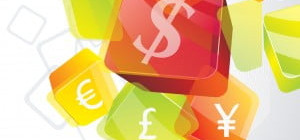 Commodity trading is not very popular to the average investor probably due to myths about the commodity markets or just because of lack of information. Some people do not like the fact that they need to keep following up on the trends in the markets for them to avoid losing out on important indicators. However, as a trader you need to be very alert at all times and capitalize on every piece of news in the media that affects the commodity you are trading on.
Commodity trading is not very popular to the average investor probably due to myths about the commodity markets or just because of lack of information. Some people do not like the fact that they need to keep following up on the trends in the markets for them to avoid losing out on important indicators. However, as a trader you need to be very alert at all times and capitalize on every piece of news in the media that affects the commodity you are trading on.
Tracking all the news in the markets and differentiating the noise from information can be tiresome and confusing; but with experts summarizing their views on iForex market analysis and such other sites, your work becomes very easy. All you need to do is to bookmark such sites and keep getting their news feeds that will help you in getting an overview of the global economy and specific activities in the markets you are trading on. This information will then help you in developing a trading strategy and keep adjusting your portfolio as necessary when new developments come by.
The need to keep tabs with the supply and demand of the commodity in you are trading on can never be over emphasized. But for you to understand how the supply and demand for the commodity will fluctuate, you need to be aware of economic and geopolitical factors that might trigger a shift in either the supply or demand. For instance if you are trading oil, then you need to be alert and take note of any developments in the oil producing countries because that will have a direct impact on the supply side of things. Taking an example of when sanctions for Iran were lifted earlier this year, the obvious outcome was more oil being produced and pumped into the market, which resulted to the glut the oil market is still struggling with. On the other hand, demand for oil is not growing at the same pace as the supply; with the demand being suppressed further by the push for clean energy under the sustainable development goals ratified last year in September. Having this kind of information handy and real time as the news breaks will keep you ahead of other traders and help you make higher margins in all your trades.
Which commodities are best to trade in?
You could be having all the right information about so many sectors in the market and wondering which the best commodity to trade in is. When making this decision, you need to consider a few factors other than just moving with crowd and trading in commodities that seem popular in the market at a given point in time.
First you need to analyze your understanding of the different commodities that you are interested in and your knowledge of their market trends as well as factors that trigger movements in their supply and demand. Expert commodity traders advise that the best commodities to trade in are those that you are familiar with or have interacted with regularly. For example, if you work in the construction industry, you might probably be very familiar with prices for copper and how they keep fluctuating. That then would be a recommendable commodity to trade in since you interact with it every other day and you much aware about its price movements.
 Secondly, you need to assess the volatility in prices for the commodity you are targeting. Depending on your risk appetite, you could go for commodities that are less volatile or those that are more volatile. However, for a beginner, you need to be cautious not to wipe out all your account in one trade. If you have a $4000 account, you do not want to trade in a commodity that can make a $1000 move in an average day. That would be tragic if the commodity was to drop with such amounts for four consecutive days!
Secondly, you need to assess the volatility in prices for the commodity you are targeting. Depending on your risk appetite, you could go for commodities that are less volatile or those that are more volatile. However, for a beginner, you need to be cautious not to wipe out all your account in one trade. If you have a $4000 account, you do not want to trade in a commodity that can make a $1000 move in an average day. That would be tragic if the commodity was to drop with such amounts for four consecutive days!
Finally you need to decide on the level of diversification you need to have in your portfolio in order to minimize your risk exposure. Some traders prefer dealing with one or two commodities only, but you can have a few more in your portfolio just to keep you cushioned against market shocks. However, remember the more commodities you have in your portfolio, the more market trends you will need to keep up with. This might be hectic and might end up turning you into a shallow jerk of all trades but a master of none; resulting to losses and thereby beating the whole purpose of diversification which is to reduce risk and maximize returns.







